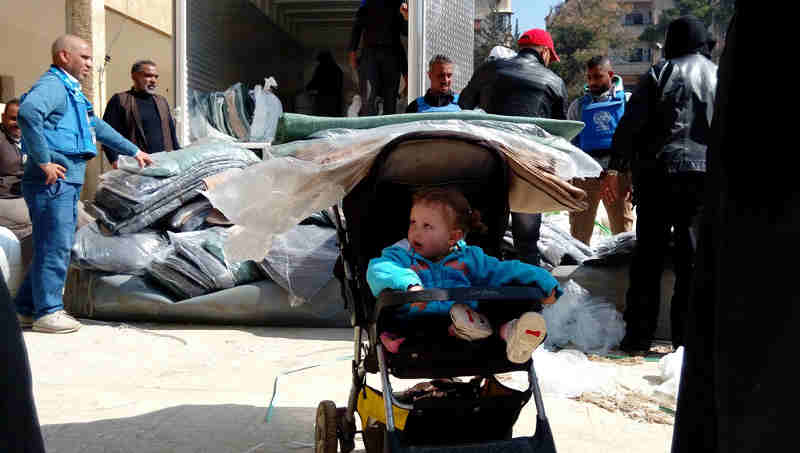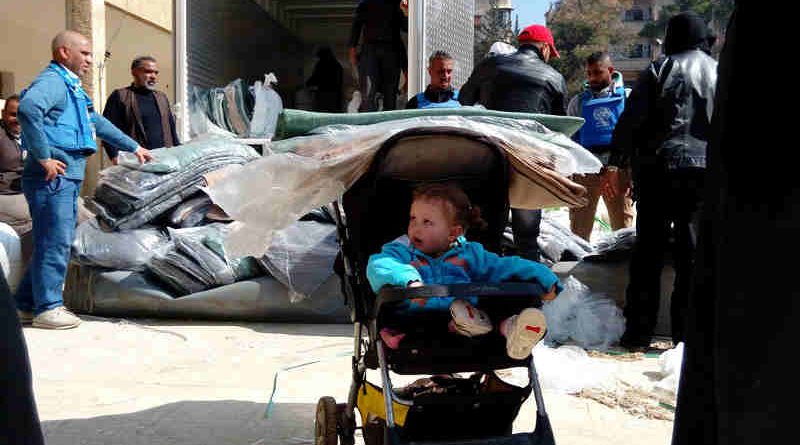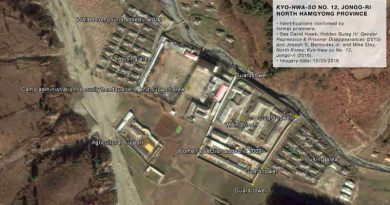Deterioration of Human Rights in Occupied Palestinian Territory

A UN expert on Friday expressed alarm about the deterioration of human rights in the Occupied Palestinian Territory (OPT), saying reports received during his visit to the region this week painted the most dispiriting picture yet of the situation on the ground.
“After years of creeping Israeli de facto annexation of the large swathes of the West Bank through settlement expansion, the creation of closed military zones and other measures, Israel appears to be getting closer to enacting legislation that will formally annex parts of the West Bank,” said the UN Special Rapporteur on the situation of human rights in the Palestinian territory occupied since 1967, Michael Lynk. “This would amount to a profound violation of international law, and the impact of ongoing settlement expansion on human rights must not be ignored.”
Lynk traveled to Amman, Jordan this week to meet with civil society, government officials and UN representatives to collect information for his next report, to be presented to the 73rd session of the General Assembly in October 2018. Israel, the occupying power, has continued to prohibit him from traveling to the OPT.
“This is my third mission to the region since I assumed the mandate in May 2016, and the reports I received this week have painted the bleakest picture yet of the human rights situation in the Occupied Palestinian Territory,” he said.
“Palestinians in the West Bank face daily indignities, as they pass through Israeli checkpoints, face night raids of their homes, and are unable to build or expand their homes or work to develop their communities due to the complex system which makes building permits nearly impossible to obtain from the Israeli authorities,” the Special Rapporteur said.
Lynk cited the situation of Khan al-Ahmar, a Bedouin community near Jerusalem, which is at imminent risk of forcible transfer after the Israeli High Court of Justice upheld a demolition order for all structures in the community. “Its residents are living in a coercive environment that may lead to forcible transfer, not knowing where they may find themselves in the coming months and not knowing if they will be living in a place where they are able to continue their traditional way of life,” he said.
The expert said the situation in Gaza continued to worsen, highlighting that the electricity crisis for example, which became acute last June, had not been alleviated.
“Residents are deprived of their most basic rights, including the rights to health, to education, and most recently, in attempting to exercise their right to freedom of expression and peaceful assembly, they were deprived of the right to life,” Lynk said, in reference to the recent demonstrations along the fence during which Israeli security forces killed more than 100 and wounded thousands of Palestinian protesters.
He also expressed concern about the impact of significant cuts to the funding of UNRWA, the UN agency that helps Palestinian refugees, noting its crucial role in providing health, protection and education services as well as employment in Gaza and the West Bank.
The Special Rapporteur heard eloquent testimony about the challenges facing the Palestinian residents of East Jerusalem, and expressed concern at information he received that recently, the Israeli Government and the Jerusalem Municipality have been advancing plans that risk denying the residency rights of 120,000 Palestinians in the municipality as part of a larger policy to maintain an Israeli Jewish majority in Jerusalem.
The Rapporteur was particularly concerned at information he received this week indicating that many human rights organizations and human rights defenders – Israeli, Palestinian, and international – are facing increasing attacks aimed not only at their delegitimization but also at their ability to operate.
He is particularly concerned that these attacks are gaining traction with members of the international community. “The incredible, and extremely difficult work that these human rights organizations do is essential to preventing a further deterioration of the human rights situation in the OPT, and any effort to undermine this work only serves to weaken human rights in the OPT, and in the broader world.”
Mr. Michael Lynk was designated by the UN Human Rights Council in 2016 as the Special Rapporteur on the situation of human rights in the Palestinian territories occupied since 1967. The mandate was originally established in 1993 by the then UN Commission on Human Rights.
Professor Lynk is Associate Professor of Law at Western University in London, Ontario, where he teaches labour law, constitutional law and human rights law.
Before becoming an academic, he practiced labour law and refugee law for a decade in Ottawa and Toronto. He also worked for the United Nations on human rights and refugee issues in Jerusalem.





